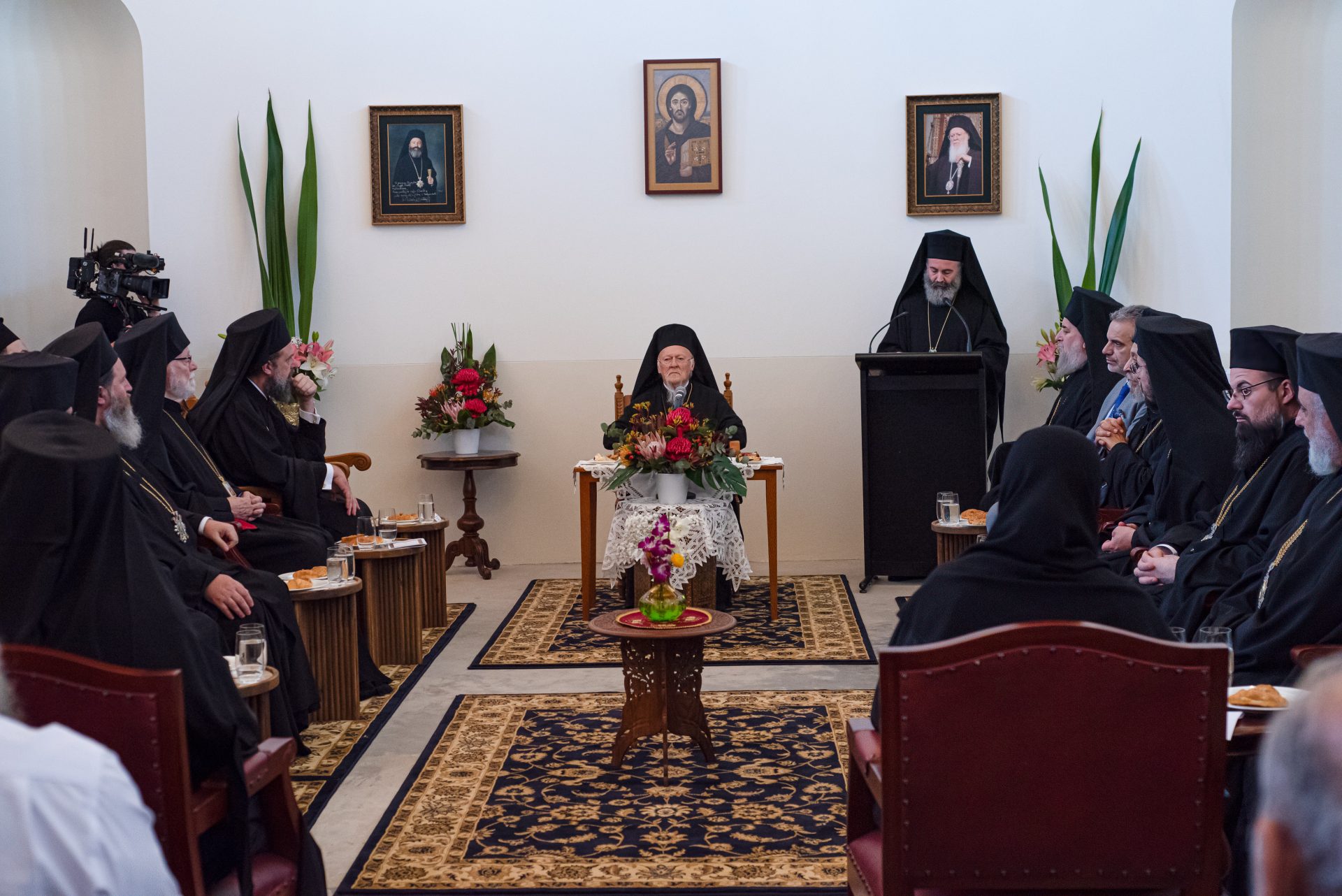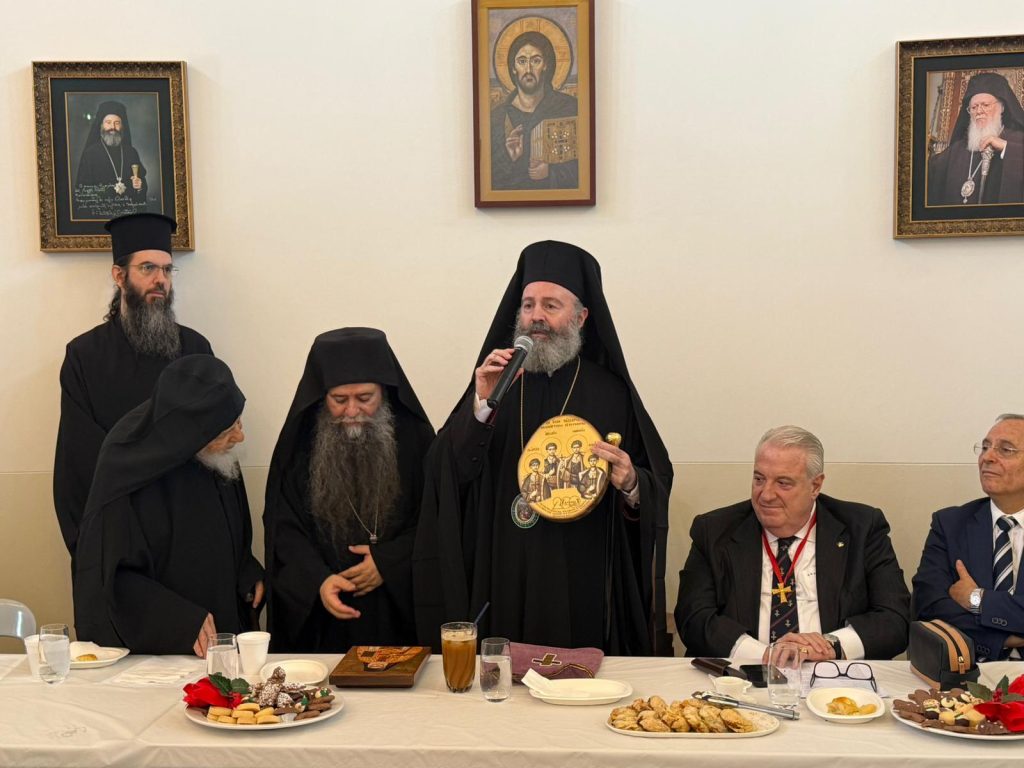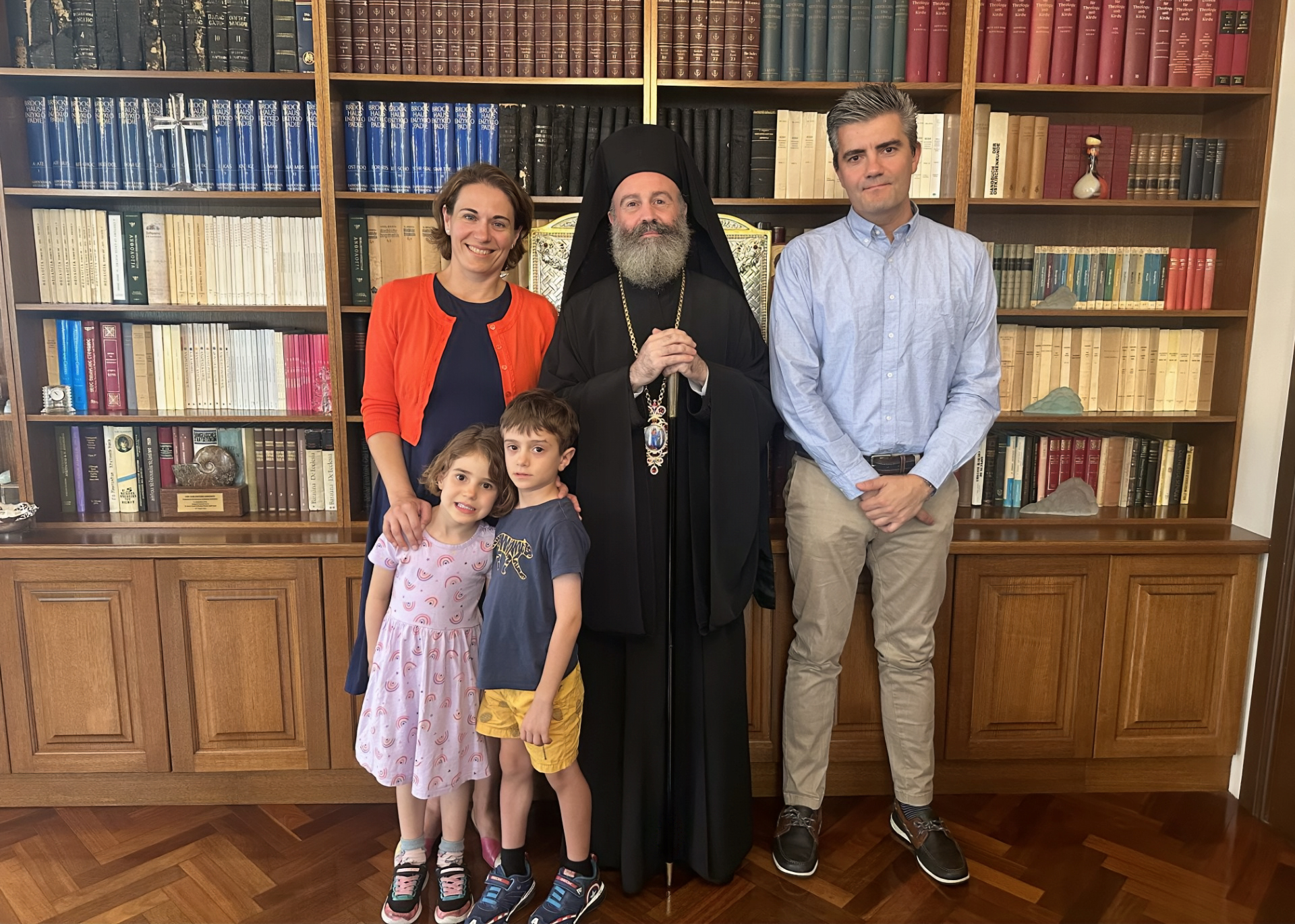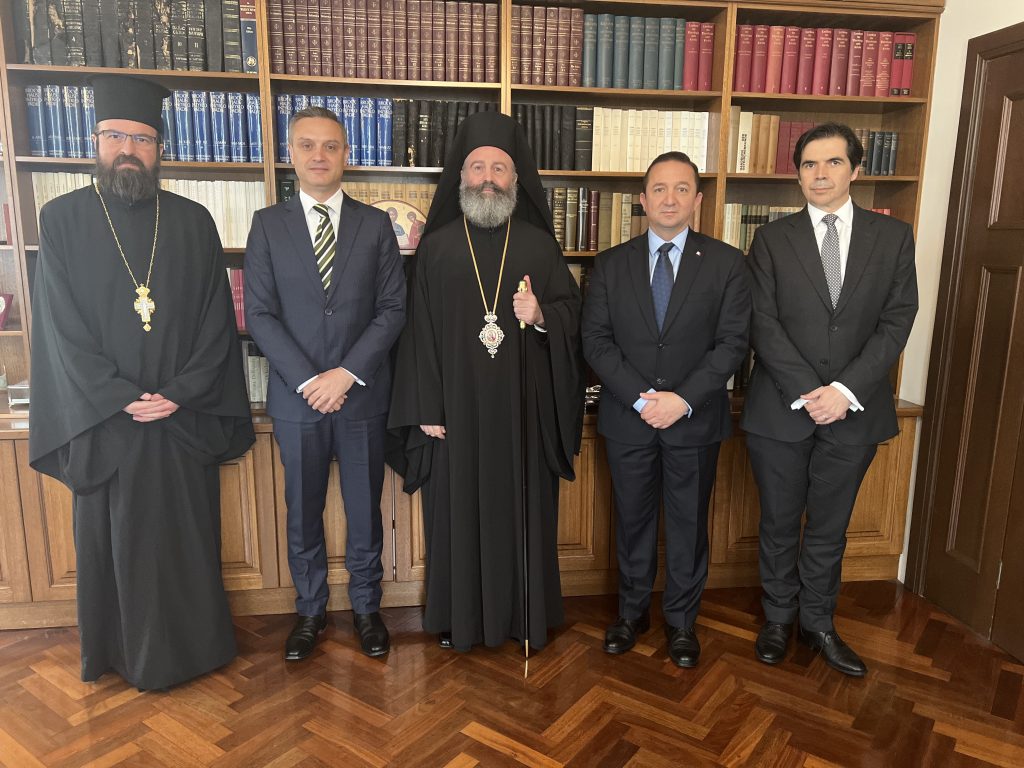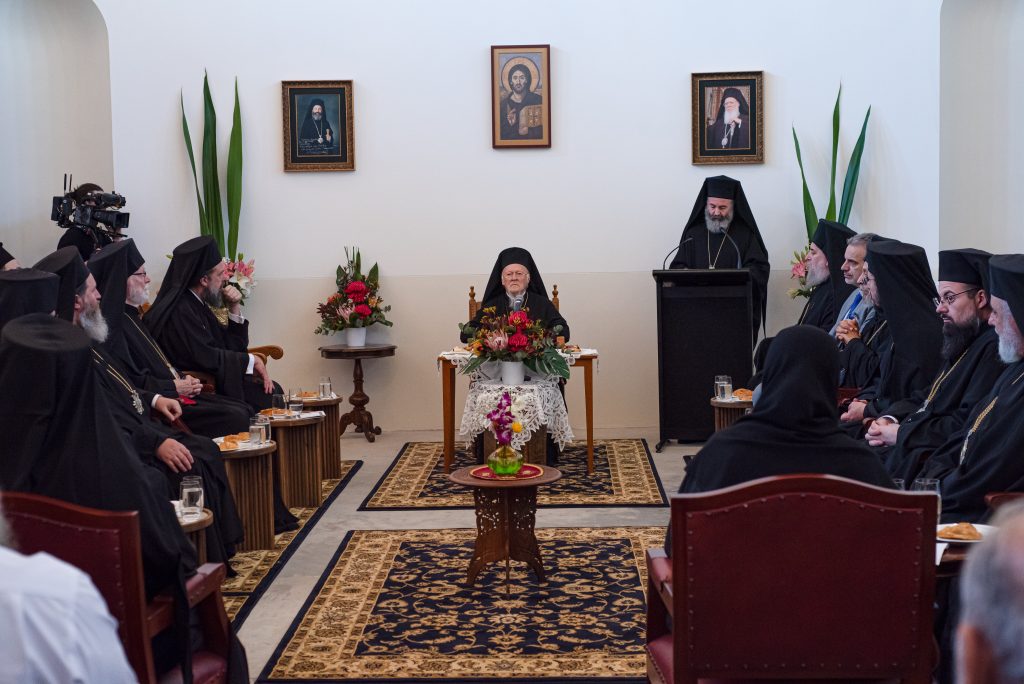
On Monday 7th October, on the occasion of the visit of His All-Holiness Ecumenical Patriarch Bartholomew to the Holy Monastery of Panagia Pantanassa in Mangrove, New South Wales, a meeting of the monastic communities of the Holy Archdiocese of Australia took place – from the Holy Monasteries of Panagia Pantanassa, St George, St John the Forerunner, Holy Cross, and Panagia Gorgoepikoos.
The monastic meeting presided over by His All-Holiness Patriarch Bartholomew was attended by His Eminence Archbishop Makarios of Australia, members of the Patriarchal entourage, including Their Eminences, Metropolitan Kyrillos of Imbros and Tenedos, and Metropolitan Filotheos of Thessaloniki, the Very Reverend Grand Protosyncellus Archimandrite Gregory, and the Grand Ecclesiarch Archimandrite Aetios, as well as Their Eminences Metropolitan Ezekiel of Dervis and Metropolitan Seraphim of Sevasteia, and Their Graces, Bishop Elpidios of Perth, Bishop Silouanos of Adelaide, Bishop Kyriakos of Melbourne, Bishop Evmenios of Chora, Bishop Bartholomew of Brisbane, Bishop Iakovos of Miletoupolis, and Bishop Christodoulos of Magnesia.
In his address, Archbishop Makarios emphasised that the local Church is proud of its monasteries and greatly rejoices in the Lord for the progress of the monks and nuns, “progress and prosperity primarily spiritual and secondarily numerical and quantitative.” He noted, “It is universally acknowledged that the flourishing and fruitful path of Orthodox monasticism in Australia is due to its adherence to the canonical frameworks and commitment to the traditions handed down by the Holy Fathers.” He continued, “In absolute obedience to the Church and its sacred institutions, both the Archbishop and the angelic ranks of the monks proceed, all having a deep sense of our mission, the command we received from the Lord, and the distinct responsibilities and ministries we hold within the Church. By the grace of God, all the monastic communities bear good witness to their faith in Christ, with the conviction that the witness of monasticism is exceedingly imperative today in the Church and, more generally, in the world, which is moving away from God and the Church.”
“The divine love for the monk constitutes the essence of his life and the entirety of his existence, filling every lack and deprivation,” stressed the Ecumenical Patriarch in his response, where he briefly outlined the nature and mission of Orthodox monasticism. “Indeed, it is a great delusion for a monk to believe that he must love only God and not his fellow human beings, for such love cannot exist,” he clarified.
Additionally, His All-Holiness Patriarch Bartholomew reminded that the Orthodox Church institutionally embraced and promoted cenobitic monasticism as the safest path to monastic perfection, rather than the hermetic or idiosyncratic ways of life. “In certain cases, of course,” he pointed out, “the Church, economically and not strictly, accepts other forms of monastic dedication besides the cenobitic life, but with the clear knowledge that they represent a deviation from the straight and well-trodden path. In the cenobitic life, the struggle to coexist and live together with the brother, not merely side by side, but in existential communion, is the crucible through which the cutting off of one’s own will is forged, leading to the fullness of divine love.”
Concluding his inspiring and instructive address, the Abbot of the Great Monastery of the Phanar expressed his paternal satisfaction because “in the Holy Archdiocese of Australia, monasticism is progressing piously and in a God-pleasing manner within the established ecclesiastical frameworks, and is flourishing under the enlightened guidance of the esteemed Elders and Abbesses and under the protection and blessing of the monastic-loving and monastic Archbishop of Australia, my beloved brother, Makarios.” He concluded, “We greatly praise this harmonious relationship between Bishop and Monasteries, express the deep satisfaction of the Great Church of Christ and of my personal self, and bestow upon you all our paternal and Patriarchal blessing, wishing you the grace and strength of our Lord in your monastic journey.”

